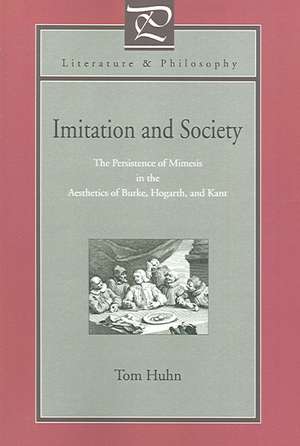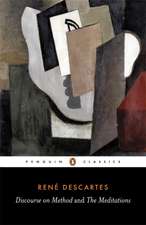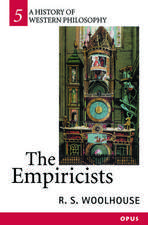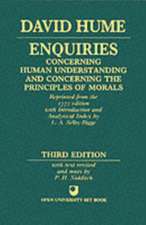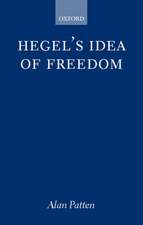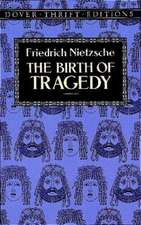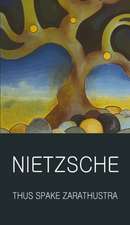Imitation and Society – The Persistence of Mimesis in the Aesthetics of Burke, Hogarth, and Kant: Literature and Philosophy
Autor Tom Huhnen Limba Engleză Paperback – 14 noi 2004
The book proceeds by reading three of the foundational treatises in aesthetics Burke s Philosophical Enquiry into the Origin of Our Ideas of the Sublime and Beautiful, Hogarth s Analysis of Beauty, and Kant s Critique of Judgment with an eye for discerning where arguments and analyses betray mimetic structures. Huhn attempts to explicate these books anew by arguing that they are pervaded by a mimetic dynamic. Overall, he seeks to provoke a reconsideration of eighteenth-century aesthetics that centers on its continuity with traditional notions of mimesis."
Din seria Literature and Philosophy
-
 Preț: 279.52 lei
Preț: 279.52 lei -
 Preț: 337.59 lei
Preț: 337.59 lei -
 Preț: 276.80 lei
Preț: 276.80 lei -
 Preț: 282.96 lei
Preț: 282.96 lei -
 Preț: 249.34 lei
Preț: 249.34 lei -
 Preț: 280.83 lei
Preț: 280.83 lei -
 Preț: 334.23 lei
Preț: 334.23 lei -
 Preț: 279.14 lei
Preț: 279.14 lei -
 Preț: 277.77 lei
Preț: 277.77 lei -
 Preț: 283.34 lei
Preț: 283.34 lei -
 Preț: 279.14 lei
Preț: 279.14 lei -
 Preț: 348.48 lei
Preț: 348.48 lei -
 Preț: 248.96 lei
Preț: 248.96 lei -
 Preț: 272.16 lei
Preț: 272.16 lei -
 Preț: 245.90 lei
Preț: 245.90 lei -
 Preț: 280.67 lei
Preț: 280.67 lei -
 Preț: 278.86 lei
Preț: 278.86 lei -
 Preț: 274.07 lei
Preț: 274.07 lei -
 Preț: 283.93 lei
Preț: 283.93 lei -
 Preț: 239.91 lei
Preț: 239.91 lei -
 Preț: 280.05 lei
Preț: 280.05 lei -
 Preț: 335.57 lei
Preț: 335.57 lei
Preț: 279.68 lei
Nou
Puncte Express: 420
Preț estimativ în valută:
53.52€ • 58.12$ • 44.96£
53.52€ • 58.12$ • 44.96£
Carte tipărită la comandă
Livrare economică 22 aprilie-06 mai
Preluare comenzi: 021 569.72.76
Specificații
ISBN-13: 9780271029122
ISBN-10: 0271029129
Pagini: 224
Dimensiuni: 152 x 229 x 16 mm
Greutate: 0.34 kg
Ediția:Revised
Editura: Penn State University
Seria Literature and Philosophy
ISBN-10: 0271029129
Pagini: 224
Dimensiuni: 152 x 229 x 16 mm
Greutate: 0.34 kg
Ediția:Revised
Editura: Penn State University
Seria Literature and Philosophy
